
Foreign relations of Kazakhstan are primarily based on economic and political security consideration. The Nazarbayev administration has tried to balance relations with Russia and the United States by sending petroleum and natural gas to its northern neighbor at artificially low prices while assisting the U.S. in the War on Terror. Kazakhstan is a member of the United Nations, Collective Security Treaty Organization, Organization for Security and Co-operation in Europe, North Atlantic Cooperation Council, Commonwealth of Independent States, the Shanghai Cooperation Organisation, and NATO's Partnership for Peace program. Kazakhstan established a customs union with Russia and Belarus which eventually became the Eurasian Economic Union. President Nazarbayev has prioritized economic diplomacy into Kazakhstan's foreign policy.

Turkmenistan's declaration of "permanent neutrality" was formally recognized by the United Nations in 1995. Former President Niyazov stated that the neutrality would prevent Turkmenistan from participating in multi-national defense organizations, but allows military assistance. Its neutral foreign policy has an important place in the country's constitution. Although the Government of Turkmenistan claims to favour trade with and export to the United States, and Turkey, its single largest commercial partner is China, which buys the vast bulk of Turkmen natural gas via the Central Asia–China gas pipeline. Turkmenistan has significant commercial relationships with Russia and Iran and growing cross-border trade with Afghanistan. The Government of Turkmenistan often appears to use the conflicting interests of these regional powers as a means to extract concessions, especially on energy issues.

The Shanghai Cooperation Organisation (SCO) is a Eurasian political, economic, international security and defence organization established by China and Russia in 2001. It is the world's largest regional organization in terms of geographic scope and population, covering approximately 80% of the area of Eurasia and 40% of the world population. As of 2023, its combined GDP based on PPP was around 32% of the world's total.

The Islamic Movement of Uzbekistan was a militant Islamist group formed in 1998 by Islamic ideologue Tahir Yuldashev and former Soviet paratrooper Juma Namangani; both ethnic Uzbeks from the Fergana Valley. Its original objective was to overthrow President Islam Karimov of Uzbekistan and create an Islamic state under Sharia; however, in subsequent years, it reinvented itself as an ally of Al-Qaeda. The group also maintained relations with Afghan Taliban in 1990s. However, later on, relations between the Afghan Taliban and the IMU started declining.
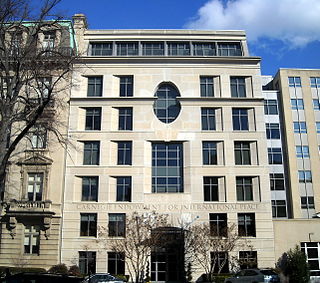
The Carnegie Endowment for International Peace (CEIP) is a nonpartisan international affairs think tank headquartered in Washington, D.C., with operations in Europe, South and East Asia, and the Middle East as well as the United States. Founded in 1910 by Andrew Carnegie, the organization describes itself as being dedicated to advancing cooperation between countries, reducing global conflict, and promoting active international engagement between the United States and countries around the world. It engages leaders from multiple sectors and across the political spectrum.
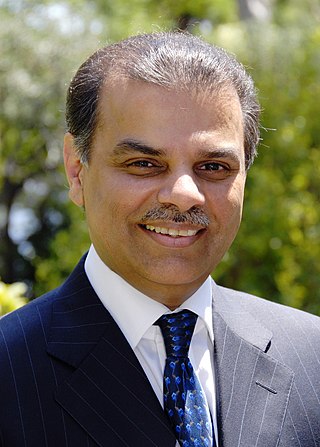
Mansoor Ijaz is a Pakistani-American venture financier and hedge-fund manager. He is founder and chairman of Crescent Investment Management Ltd, a New York and London-based investment firm that operates CARAT, a proprietary trading system developed by Ijaz in the late 1980s. His venture investments included unsuccessful efforts in 2013 to acquire a stake in Lotus F1, a Formula One team. In the 1990s, Ijaz and his companies were contributors to Democratic Party institutions as well as the presidential candidacies of Bill Clinton.
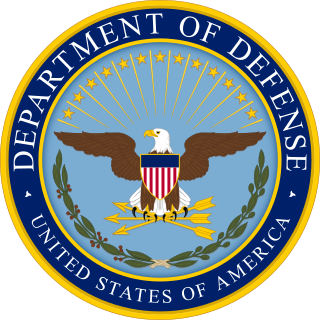
The United States under secretary of defense for policy (USDP) is a high level civilian official in the United States Department of Defense. The under secretary of defense for policy is the principal staff assistant and adviser to both the secretary of defense and the deputy secretary of defense for all matters concerning the formation of national security and defense policy.
Barnett Richard Rubin is an American political scientist and a leading expert on Afghanistan and South Asia. He is the author of eight books and is currently senior fellow and director at the Center on International Cooperation at New York University, a leading foreign policy center. He was previously senior advisor to the US special representative for Afghanistan and Pakistan. He has advised the United Nations, NATO, the United States, and the Afghan government on numerous policy matters, including aid policy, security policy, and diplomatic strategy.
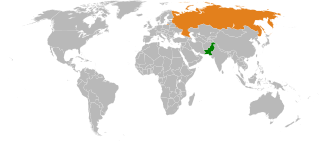
The Soviet Union and Pakistan first established the diplomatic and bilateral relations on 1 May 1948.

Karl Winfrid Eikenberry is a retired United States Army lieutenant general who served as the U.S. ambassador to Afghanistan from April 2009 to July 2011. From 2011 to 2019, he was the director of the U.S. Asia Security Initiative at the Walter H. Shorenstein Asia-Pacific Research Center and a Stanford University professor of the practice; a member of the core faculty at the Center for International Security and Cooperation; and an affiliated faculty member at the Freeman Spogli Institute for International Studies, Center on Democracy, Development and the Rule of Law, and the Europe Center.
For purposes of U.S. foreign policy, South Asia consists of Afghanistan, Bangladesh, Bhutan, India, the Maldives, Nepal, Pakistan, and Sri Lanka. The Assistant Secretary of State for South and Central Asian Affairs was Nisha Desai Biswal.

Sartaj Aziz was a Pakistani economist and strategist, who had previously served as the deputy chairman of the Planning Commission of Pakistan, member of the federal cabinet as the de facto Minister for Foreign Affairs, a Federal Senator as well as the National Security Advisor.
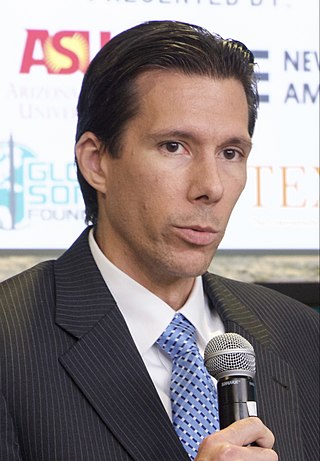
Paul D. Miller is an American academic, writer and former White House staffer for Presidents George W. Bush and Barack Obama. He is a professor in the Practice of International Affairs at Georgetown University's School of Foreign Service. He is a former associate director of The William P. Clements Jr. Center for National Security at the University of Texas at Austin. He formerly worked as an adjunct political scientist at the RAND Corporation. He is a reserve Army officer and veteran of the War in Afghanistan. Miller's writing has appeared in Foreign Affairs, The Washington Post, The American Interest, World Affairs, The Washington Quarterly, War on the Rocks, and elsewhere.
Arturo G. Muñoz is a former Central Intelligence Agency (CIA) senior intelligence officer with three decades of analytical skills and operational experience, both in the Directorate of Intelligence (DI) and in the Directorate of Operations (DO). He managed highly classified covert-operations and HUMINT collections for the CIA National Clandestine Service in various high-ranking positions. Muñoz is highly regarded at the CIA as an intelligence officer and a psychological operations expert with countless successful programs; to include innovative covert action campaigns with verifiable impacts in Latin America, Southwest Asia, the Balkans, the Middle-East, and North-Africa. Muñoz is a well known pundit on national security, international affairs, espionage and U.S. foreign policy.
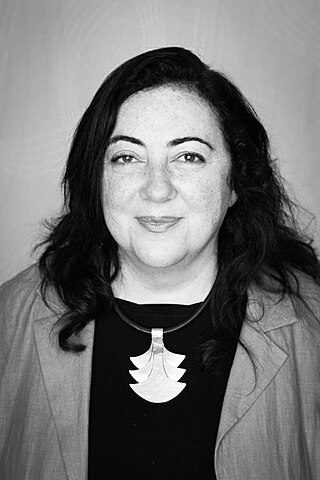
Shahrbanou Tadjbakhsh is an Iranian-American researcher, university lecturer, and United Nations consultant in peacebuilding, conflict resolution, counter-terrorism, and radicalization, best known for her work in "Human Security" and for contributions in the republics of Central Asia and Afghanistan, as cited by the New York Times and other publications as well as hundreds of scholarly publications. Currently, she is a lecturer at Sciences Po, researcher, and consultant to the United Nations.

The military relations between Pakistan and the United States have been present since the two established diplomatic relations in 1947. The United States and Pakistan's military have historically close ties and it was once called "America's most allied ally in Asia" by Dwight D. Eisenhower, reflecting shared interests in security and stability in South Asia, Central Asia as well as in regions covering Eastern Europe.

Christine Sandra Abizaid is an American intelligence officer who is the director of the National Counterterrorism Center in the Biden administration.

The C5+1 is a diplomatic summit that has been held every year since 2015 between the foreign ministers of the five Central Asian countries of Kazakhstan, Kyrgyzstan, Tajikistan, Turkmenistan, and Uzbekistan, with the United States Secretary of State to discuss and work on common issues of concern to improve and strengthen the U.S. relationship with the five Central Asian states, but to also enhance the relations between the individual nations in Central Asia. The format is used to discuss regional issues such as the war in Afghanistan, the Syrian civil war, the War on terror, combatting drug and human trafficking, economic issues regarding trade relations, job growth in the region, and combatting environmental issues.

The Afghanistan War Commission is a bipartisan legislative commission established to study the entirety of U.S. military operations in Afghanistan from 2001 to 2021. This commission was formally authorized as part of the 2022 National Defense Authorization Act.
Many terrorist attacks targeting Chinese nationals have occurred in Pakistan. These attacks have been carried out by Pakistani terrorist organizations such as the Balochistan Liberation Army (BLA) and the Pakistani Taliban. Chinese investment in Pakistan, the end of American policing of terrorism in the region, and the treatment of the Uyghur people in China have all contributed to an increase in terror attacks targeting China.
















